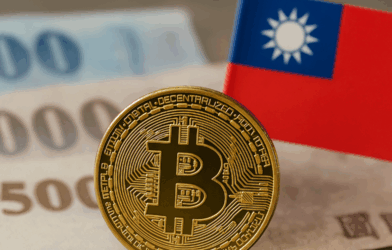The island nation of Madagascar is experiencing a wave of civil unrest unlike any seen in recent years. What began as sporadic gatherings over poor living conditions has rapidly evolved into full-scale youth-led protests demanding accountability, infrastructure reform, and political change. In the midst of this turmoil, a new digital phenomenon has caught global attention — the sudden surge in downloads of Bitchat, a decentralized, offline communication app gaining traction during periods of government disruption and censorship.
The Crisis Unfolding in Madagascar
Madagascar’s recent protests were sparked by basic but urgent grievances: persistent water shortages, widespread power cuts, and growing public frustration with corruption and economic stagnation. The tipping point came when young citizens began organizing through local networks, calling for the resignation of President Andry Rajoelina. What started as peaceful demonstrations soon escalated into nationwide marches and street blockades.
In response, the government announced emergency measures — dissolving the entire cabinet, imposing curfews in major cities, and attempting to control the flow of information. However, as traditional communication channels came under pressure, citizens began seeking alternate ways to stay connected and organize. That’s where Bitchat entered the picture.
What Is Bitchat and Why Is It Trending?
Bitchat is a decentralized, peer-to-peer messaging platform designed to function without internet or mobile networks. It uses Bluetooth mesh technology that allows messages to hop from one nearby device to another until they reach the recipient. This means users can communicate even during internet blackouts, mobile data restrictions, or censorship events.
The app offers several privacy-focused features:
- No centralized servers or personal data storage
- End-to-end encryption
- Anonymous account creation (no phone number or email required)
- Offline message relaying through connected peers
Originally launched in beta during mid-2025, Bitchat positioned itself as a “freedom communication tool” for use in remote, restricted, or censored environments. Its usage skyrockets whenever political tension, protest activity, or internet throttling occurs — a pattern that’s now repeating in Madagascar.
A Sudden Download Explosion
Within just a few days of protest escalation, search trends for “Bitchat” and “Bitchat download” surged across Madagascar, with the highest volume coming from Antananarivo, the capital city. App analytics platforms recorded an exponential jump — from a few hundred daily downloads to tens of thousands.
While exact local figures are difficult to verify, overall installations reportedly exceeded 350,000 globally, with tens of thousands in the last 24 hours alone. Considering Madagascar’s relatively low internet penetration — only around 20% of its 32 million citizens — such numbers are remarkable.
This data suggests that even with limited connectivity, peer-to-peer sharing (via APK files, Bluetooth transfers, and offline sharing) has helped Bitchat spread virally across protest groups. It mirrors similar trends observed during unrest in Nepal and Indonesia earlier this year, where Bitchat also became a digital lifeline amid communication blackouts.
Technology Meets Civil Resistance
The rising popularity of decentralized communication tools like Bitchat highlights a deeper social and technological shift. In many developing regions, state control of infrastructure — from power grids to telecom networks — often becomes a vulnerability during protests. When governments restrict online platforms or disable mobile data, citizens turn to “off-grid tech”: tools that bypass centralized systems entirely.
Bitchat embodies this movement. It’s part of a growing category of censorship-resistant technologies that use local mesh networks, blockchain principles, and peer relays to maintain information flow. Its success in Madagascar underlines how technological decentralization can empower civic organization even when traditional systems fail.
However, while Bitchat provides anonymity and connectivity, it also faces challenges. Security experts warn that mesh networks can be vulnerable to spoofing, interception, and relay overloads. Moreover, its beta status means performance issues, limited message range, and scalability concerns remain unsolved.
Political and Market Implications
The surge in decentralized communication tools amid protests carries implications beyond Madagascar’s borders.
- For Democracy & Civil Movements
The adoption of apps like Bitchat demonstrates the growing role of technology in grassroots activism. As states tighten control over information, decentralized digital tools are becoming a vital part of civic resistance and coordination. - For Emerging Markets
Investors monitoring frontier economies may see rising geopolitical risk premiums in nations where youth unrest and infrastructure decay collide. Sectors like utilities, telecom, and public infrastructure are likely to face scrutiny and volatility in the near term. - For Web3 and Decentralized Systems
The Bitchat story resonates with Web3’s core ethos: resilience through decentralization. Although Bitchat itself doesn’t operate on blockchain, its philosophy aligns with Web3’s broader mission — distributing control and eliminating single points of failure. - For Security and Policy Makers
Governments are increasingly challenged by untraceable, encrypted communications. While these tools aid free speech, they also complicate law enforcement efforts. Policymakers will likely debate new frameworks balancing security and privacy, especially as such tools proliferate in politically sensitive regions.
The Bigger Picture: A Warning and a Window
The events in Madagascar highlight a global trend — the intersection of technology, governance, and public frustration. As infrastructure and leadership falter, citizens are turning to decentralized systems not just for finance, but for survival-level communication.
This marks a new chapter in how technology supports social resilience. Bitchat’s rise is not merely a story of app downloads — it’s a reflection of a population demanding connection when traditional systems fail them.
At the same time, it serves as a warning: societies that neglect essential services and limit expression may inadvertently accelerate the adoption of technologies that bypass their control entirely. What begins as a local protest can quickly evolve into a global case study in digital empowerment.
Outlook: What Comes Next
- Short-Term: Expect sustained Bitchat usage in Madagascar while unrest continues, with potential expansion to neighboring African nations facing similar instability.
- Medium-Term: Developers may rush to strengthen app security, scalability, and offline routing capabilities. Competing decentralized messaging apps could also enter the spotlight.
- Long-Term: As the world edges toward a new era of information autonomy, decentralized communications may become as integral to social resilience as cryptocurrencies are to financial freedom.
In essence, the “Madagascar Effect” — a spontaneous migration to decentralized tools amid crisis — could become a recurring pattern in modern geopolitics.
As traditional systems falter, people are choosing connection over control, and in doing so, quietly reshaping the balance between power and technology.











